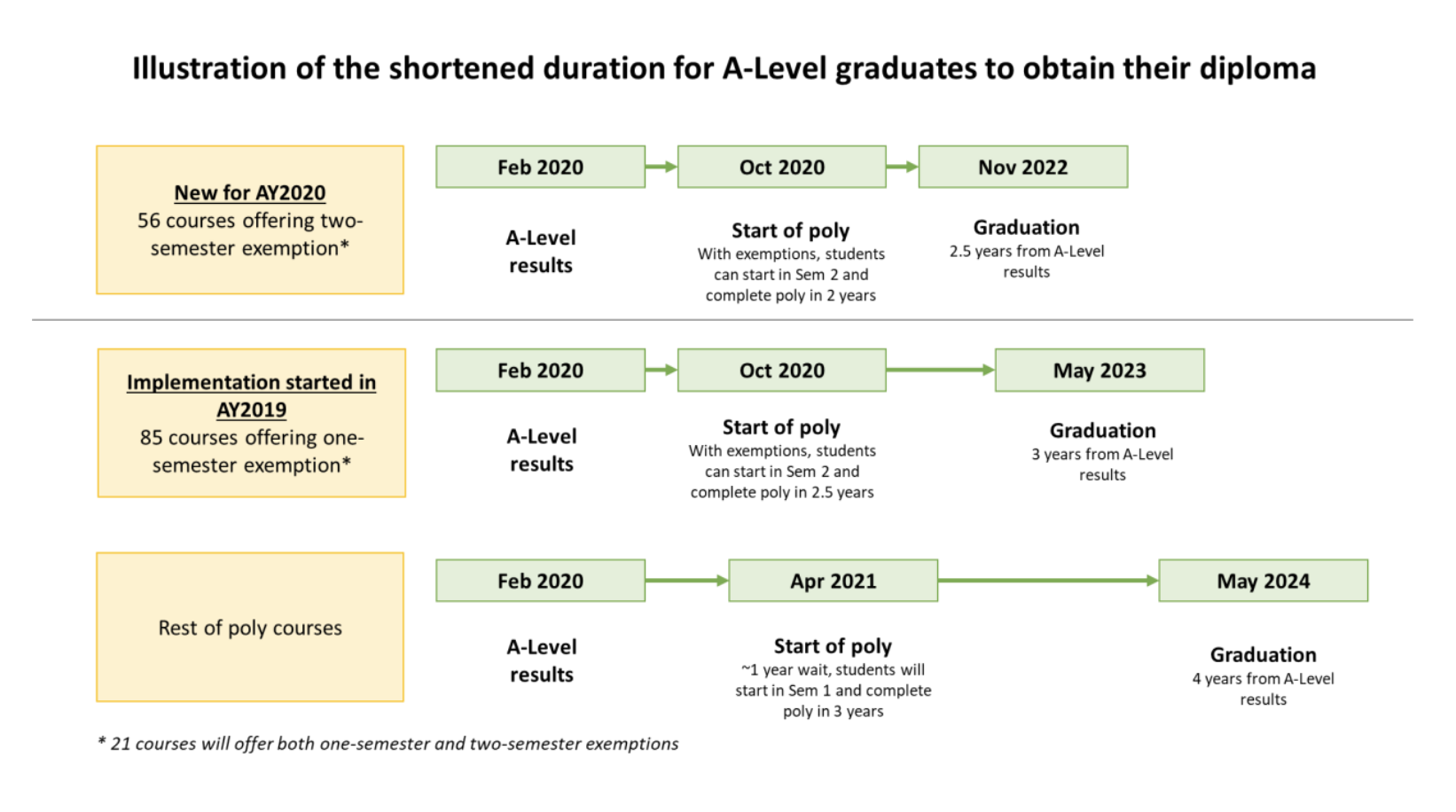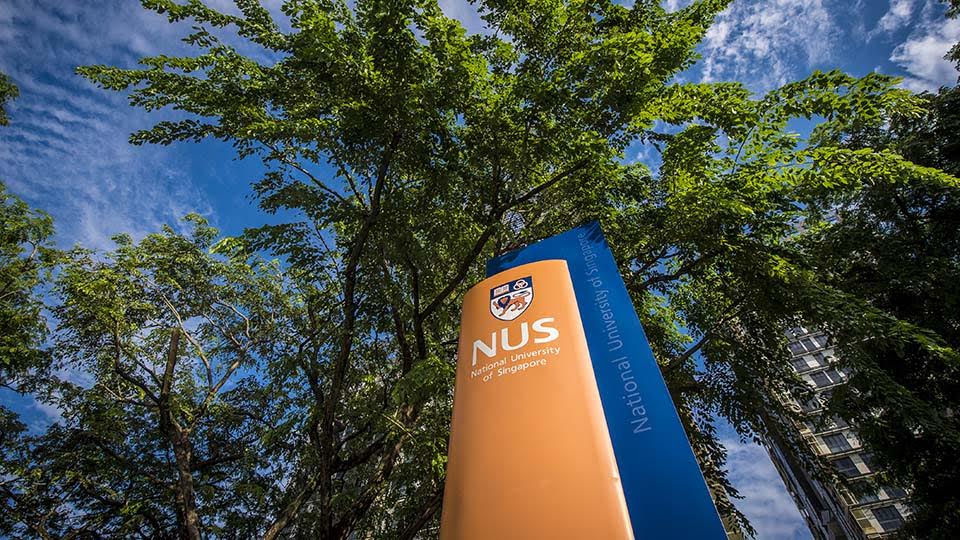In order to better support the interests, aptitudes and learning needs of students in Singapore, the Ministry of Education (MOE) is looking to revamp the higher education landscape.
From Academic Year (AY) 2020, eligible A-Level graduates can obtain exemptions of up to two semesters in 56 polytechnic diploma courses. This allows them to complete their polytechnic studies in two years, instead of the usual three years.
Previously, from AY 2019, A-Level graduates could be admitted to polytechnics at the start of Year 1 Semester 2 for around 110 diploma courses, which meant completion of their polytechnic studies in 2.5 years.
The total number of polytechnic courses offering exemptions for eligible A-Level students will increase to 120 courses in AY2020 Semester 2 in October 2020. This accounts for about two-thirds of all polytechnic courses.
MOE will also further expand aptitude-based admission at three autonomous universities, namely, the National University of Singapore (NUS), Nanyang Technological University (NTU) and the Singapore Management University.
These schools will rely less on academic grades as a starting point when assessing students and more on other yardsticks of merit. This allows a fuller range of an individual's aptitude and attributes to be taken into account.
NUS, NTU, and SMU already do this for a range of courses, to identify students who possess the relevant skills, competencies, and passion to do well in their courses. Such courses include Architecture, Art, Design & Media, Dentistry, Law, Medicine and Nursing.
From the AY2020 admissions exercise, the schools will expand their adoption of aptitude-based assessment in their admissions practices.
"As we develop more pathways in our education and training system, we have aligned the admission criteria for full-time and part-time polytechnic diplomas, as well as ITE's Technical Engineering Diploma (TED)/Technical Diploma (TD) programmes. We have also opened up new admission pathways to support Singaporeans in pursuing skills upgrading based on their needs," said the MOE.





